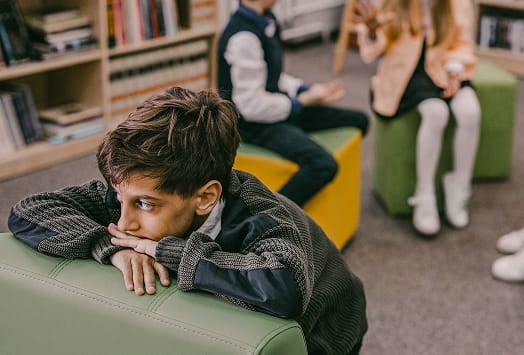When thinking about how your child spends after school time, there is a balance that needs to be struck. Some children really benefit from – and frankly need – more structure and increased group time after an academic day. And some prefer to do their own thing and might prefer downtime or one-on-one lessons. Some children need more outlets for their creativity or a bigger space to move their bodies than what you can offer at home.
There are four areas that need to be considered when thinking about a child’s weekly after school schedule:
1. Skill building and recreational activities
After school activities (sports, theater, art, tech class, yoga, etc.) will offer structured opportunities to be part of a group outside of school where demands are low, adult support is present, and kids can be kids!
It is every well-meaning parent’s intention to kick off the school year with some fun new afterschool activities but consider going with an old favorite of your child’s, for back-to-school comfort, or simply encourage and empower your child to choose one or two things they would like to do. Building on existing passions and strengths fosters confidence which will be a great way to jump back into in-person academics and socialization.
2. Family time and dinner
Eating as a family has so many benefits. This simply isn’t possible for many families on weeknights, but to the extent that it is or that it can be, it should be a consideration. An alternative is a planned, and anticipated, activity before bedtime.
Spending time with your child or with your family around the table might provide your child with a deeper sense of belonging during a critical period in their development. Family meals and family bonding time offer chances to “check in”, practice table manners, communicate, and to practice healthy eating habits.
.jpeg)
3. Free play and down time
Kids need down time to process their school day. They need unstructured time to play. In play, children learn to navigate their social and physical environment. They work on creative problem-solving skills and may be more likely to take risks without anyone observing. In playing with other children outside the context of adult led activities children will make up rules, set goals for themselves, explore, learn from trial and error, and laugh and be silly. All healthy and important things. Some children need this time more than others but, ultimately, they all need it to some degree.
4. Homework and any therapeutic/academic supports
It is helpful for most kids to have a predictable homework routine. Finding the right time of day, and the right number of days to do homework each week, is important and should be individualized to your child. If the homework routine isn’t working, step back and figure out what needs tweaking, or where help may be needed, maybe morning hours are best? Maybe doing the homework with a tutor or as part of an after school program would go over better? Many children these days receive academic and/or therapeutic supports at or outside of school. It is far more common than people realize, but it’s still work for your child, and should be carefully balanced with the other after school activities and down time.
.jpeg)
Is your family ready for back-to-school season?
Ultimately, it’s not about focusing on one of these at the exclusion of the others but about finding the right balance and combination of all of them, realizing that none of them will (or should) always come in first place.
Knowing that your child changes and that their after school needs, as well as the needs of your family, will be ever-changing, allows parents to feel more liberated to make choices based on the present moment. Step back, observe your child, think critically about what they are communicating to you and make your choices based on those observations and reflections. Let your child be your guide. And if you're looking for guidance on morning routines for kids, including morning routine ideas for school, check out our other guides!

















